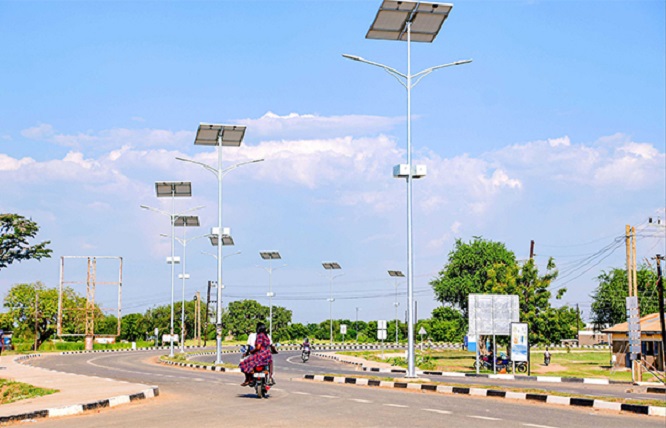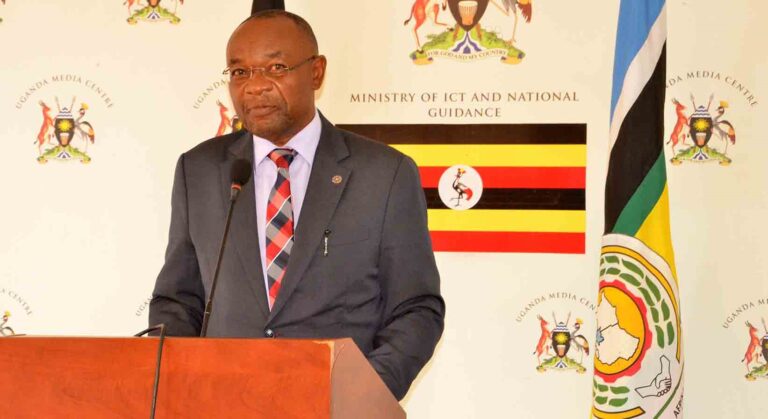
The Petroleum Authority of Uganda (PAU) has disclosed that the country’s recoverable costs in the oil and gas sector stands at $2.8b, making the country a very attractive investment destination.
“Currently, in terms on the cumulative status, audits have been completed for the years 2001 to 2019, and about $2.8b is approved for recovery,” said Gloria Sebikari, the PAU director for corporate affairs and Public relations.
Recoverable costs refer to costs associated with exploring for and developing natural resources, such as oil and gas. This can include the costs of drilling wells, building pipelines, and other infrastructure needed to extract and transport the resources.
Ali Sekatawa, the PAU director for legal and corporate affairs also said in February 2022, when the final investment decision (FID) on the Lake Albert Development was made, recoverable costs stood at about $3b.
Irene Bateebe, the energy ministry permanent secretary, said the very latest and current value of the recoverable cost for the private companies investing in Uganda’s oil and sector keep on fluctuating.
“Every passing day, the companies working in this sector are investing. They therefore compute the recoverable figure on a daily and this keeps changing over time,” she said, adding that the costs as they stand, are feasible and keeps on attracting multinational companies to Uganda.
Industry watchers have however pointed out that given that the figures relate to the exploration phase, the recoverable costs are expected to increase as Uganda moves forward with the development of the projects, leading up to commercial production.
“Crude oil prices are determined by international factors, and not the recoverable costs. These costs are determined by both Capital Expenditure and Operational Costs, as is recognised globally,” said Oxfam International.
In their report titled: “Cost oil check down the line: Understanding how oil recoverable costs could erode Uganda’s petroleum revenue gains,” Oxfam said
It said that since Uganda plans to commercialize its petroleum resources, estimated at 6.5 billion barrels, through use of crude for gas and power generation, refining, and crude oil export via pipeline, it needs hefty investments.
“These plans require key pieces of infrastructure such as an international airport, tarmac roads, a crude oil export pipeline, feeder pipelines, and a refined products pipeline, a storage terminal,” Oxfam said in a recent statement authored by Magara Siragi Luyima, an economist.
It said Uganda adopted the Production Sharing Agreements (PSA) model, where the country signed contracts with international oil companies (IOCs) for exploration, development and production of petroleum resources.
“For Ugandans to benefit from these resources sustainably, it will require a well-designed and properly administered fiscal regime (petroleum revenue generation and spending frameworks). This should determine how the petroleum revenues are shared between the government on behalf of citizens and the investors (IOCs) who are the providers of capital, technology, and expertise in the petroleum sector.”
According to PSAs, all exploration, development and production expenditures and operating expenses shall be recovered by IOCs, which are reflected in recoverable costs.
“Royalties and cost oil are deducted from gross production in arriving at profit oil, which is shared between the government and the contractors, according to the terms of the PSA,” says Luyima.
Uganda’s petroleum regulations and PSAs provide for an advisory committee made up of representatives from the Petroleum Authority of Uganda (PAU), Uganda Revenue Authority, Ministry of Finance and the licensees (IOCs) that review and approves the oil company annual work programmes and budgets which form the basis for allowable recoverable costs.
“The work programmes are monitored by PAU to ensure alignment with approved budgets and plans,” said Sebikari.
REVENUE LOSS
In the process of compiling recoverable costs, oil companies submit oil development plans with the budget before commencement of work.
“While this seems all right, it presents significant risks to the government because the approved budget in the development plan is considered a recoverable cost. Because of the always pending cost audit reports that are yet to be released by Office of the Auditor General, the costs keep on accumulating,” said Oxfam.
It says the real danger which is likely to result into loss of billions of dollars supposed to come into Government of Uganda coffers is the fact that PAU approves oil companies’ development plans without any form of oversight and a thorough audit of the planned recoverable expenses.
“This is a recipe for loss of revenue to Uganda. Unless oil development plans have in-built flexibility regarding detection of fraud at any stage of implementation, the companies can arm-twist the government and limit its ability to fight inflation of expenses, which might erode expected revenues,” says Oxfam
It highlighted an instance where the Office of the Auditor General rejected up to sh290b ($82,294,117) in cost claims in 2016 as ineligible expenses.
“This would easily cost government lots of money in court awards if the oil companies chose to challenge the rejection in the courts. Also, lack of parliament’s oversight on recoverable costs compounds the risk,” it further says.
“The Office of the Auditor General audits the recoverable costs and submits its report to parliament after development plans have been approved and costs have been incurred by oil companies – this is rather post mortem.”
OIL INFLATION
Oxfam says Uganda has the potential to turn the economy around and accelerate economic progress if petroleum revenues are put to proper use.
“However, the Government needs to design prudent fiscal strategies for the production of resources and the subsequent use of the revenue. This will address the likely risks of possible cost oil-inflation that would erode revenue gains to the disadvantage of Ugandans,” it says.
Oxfam urged Government to strengthen the audit and cost verification function.
“This will include adding oversight on the cost verification by PAU. It should also revise the Petroleum (Exploration, Development and Production Act), 2013, to include parliamentary oversight on the recoverable costs. The ad hoc committee that approves oil development plans should report to parliament before approving the plans.”
The Naitobi, Kenya headquartered body also advised Government to ensure adequate cost control and monitoring, through enforcing technical oversight during negotiation and signing of PSAs.
“Update the accounting procedures to negotiate revisions to the existing PSAs to rid them of weaknesses that could put government revenue at risk,” it counseled.
According to Worldometer, a global natural resource evaluation body, Uganda holds 2,500,000,000 barrels of proven oil reserves as of 2016, ranking 31st in the world and accounting for about 0.2% of the world’s total oil reserves of 1,650,585,140,000 barrels.
Uganda has proven reserves equivalent to 214.0 times its annual consumption. This means that, without Net Exports, there would be about 214 years of oil left (at current consumption levels and excluding unproven reserves).
PAU reported that based on the above descriptions therefore, Uganda’s in place oil resources (Stock Tank Oil Initially in Place (STOIIP)) in the Albertine Graben, which are currently estimated at 6.5 billion barrels out of which 1.4 billion barrels are technically recoverable.
“Of the technically recoverable resources, 1.0 billion barrels are reserves (Recoverable at current conditions) and 0.4 billion barrels are Contingent resources. The planned lifecycle for production of the estimated reserves from the Kingfisher and Tilenga projects is twenty-five (25) years. This is expected to be prolonged when some of the current Contingent resources become reserves.”




